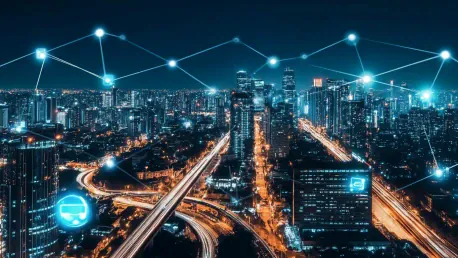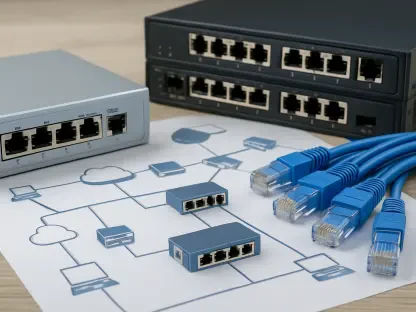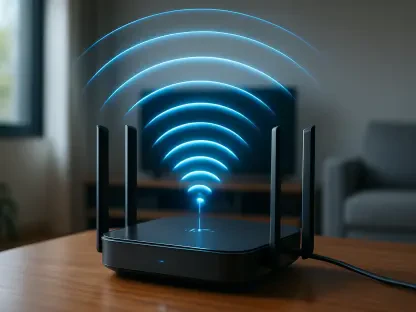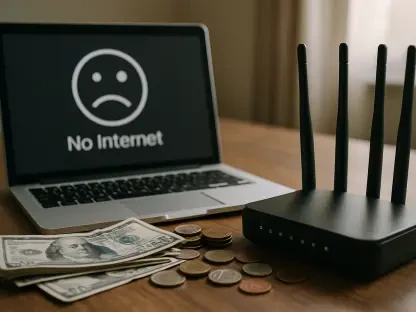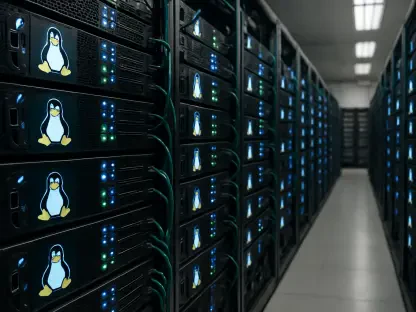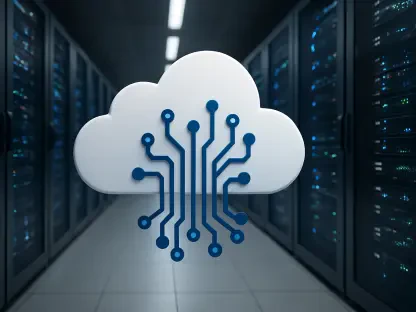The Internet of Things (IoT) has rapidly evolved from a futuristic concept to an integral part of daily life, offering enhanced comfort, personalization, and automation for consumers. As we look ahead to 2024, several key innovations are poised to revolutionize how individuals interact with their environments through IoT solutions. The impact of IoT is expanding beyond niche applications, promising to reshape entire sectors such as home automation, healthcare, and entertainment. The level of integration and convenience that these technologies will offer holds the potential for completely transforming the daily lives of consumers, making routine tasks more seamless and enhancing overall quality of life.
AI-Powered Smart Homes
AI integration in smart homes is set to become more sophisticated, with devices anticipating user needs and adapting to preferences. Proactive automation will see IoT devices using AI to predict user actions, such as adjusting lighting and temperature based on previous patterns or activating security systems when occupants are away. This level of automation promises to make daily routines more seamless and efficient. Imagine coming home to a well-lit, temperature-controlled house with your favorite music already playing, all without lifting a finger. AI’s ability to learn user habits will transform homes into personalized sanctuaries tailored to individual preferences.
In addition to AI-driven automation, multi-device interoperability is another crucial focus for the upcoming year. Emerging standards like Matter are enabling seamless communication between devices from various manufacturers. This trend enhances user experience by allowing different smart home devices to work together harmoniously, creating a more cohesive and intuitive environment. For example, a smart thermostat syncing with smart window blinds and lighting systems will optimize energy efficiency while ensuring comfort. This kind of interconnectivity among devices will not only simplify everyday tasks but also contribute to a more integrated and responsive living environment.
Advanced Wearable Health Solutions
Wearable IoT devices are expanding their capabilities beyond fitness tracking to offer comprehensive health solutions. Advanced biometrics in wearables will monitor critical health metrics such as blood pressure, glucose levels, stress, and mood. This will provide users with a more detailed understanding of their health and well-being, going beyond basic step counts and calorie tracking. Continuous health monitoring allows for early detection of potential health issues, which can be crucial in preventive medicine. For instance, a wearable could alert a diabetic patient if their glucose levels are abnormal, allowing for timely intervention.
The trend of telehealth integration is also growing, with wearables connecting with healthcare providers to facilitate remote patient monitoring and telemedicine. This innovative approach will enrich healthcare delivery and outcomes, making it easier for individuals to manage their health from the comfort of their homes. Remote patient monitoring means real-time health data can be shared with medical professionals, ensuring timely advice and intervention without the need for frequent hospital visits. Telehealth-enabled wearables will be especially beneficial for managing chronic conditions and post-surgical recovery, offering patients and caregivers peace of mind and a higher quality of care.
Smart Kitchens and Appliances
IoT is transforming cooking and cleaning experiences in the kitchen. Smart fridges, for example, can track expiry dates, suggest recipes based on available ingredients, and even automate grocery orders. This will help consumers reduce food waste and streamline meal planning, making everyday kitchen activities more efficient and enjoyable. Imagine never running out of milk because your fridge ordered it for you or discovering a new recipe based on what’s already in your pantry. These smart kitchen tools promise to save time and effort, allowing more focus on enjoying meals rather than the logistics of preparing them.
Energy efficiency is another significant aspect, with the development of smart home appliances like ovens and dishwashers that meet energy sustainability criteria. These appliances will not only save energy but also reduce utility bills, making them an attractive option for eco-conscious consumers. For instance, a smart dishwasher could optimize its washing cycle based on the load, ensuring minimal water and energy usage. Such advancements in energy-efficient appliances not only contribute to lower household expenses but also align with broader environmental sustainability goals, making smart kitchens a crucial component of modern, sustainable living.
Enhanced Home Security Systems
Home security systems are evolving to become more intuitive and robust. Innovations in facial recognition and AI surveillance enable smart cameras to differentiate between familiar faces and strangers, only triggering alarms when potential threats are detected. This will provide homeowners with greater peace of mind and security, reducing the likelihood of false alarms and ensuring that genuine risks are promptly addressed. Imagine a security system that recognizes family members, regular visitors, and distinguishes them from potential intruders, ensuring a more secure and less intrusive experience.
Integrated security solutions further enhance convenience by automatically locking doors when the security system is activated. This ensures a comprehensive and user-friendly security ecosystem, making it easier for consumers to protect their homes. For instance, you could arm your security system with a simple voice command or a single tap on your smartphone, knowing that all entry points will be secured. These advancements in home security are designed to offer maximum protection with minimum effort, creating an environment where safety and convenience go hand in hand, particularly in smart homes of the future.
Immersive Entertainment Systems
The entertainment sector is witnessing a transformation through IoT, with immersive entertainment systems gaining traction. Smart TVs and speakers are designed to learn user content preferences and optimize audio-visual experiences accordingly. This will provide a more personalized and enjoyable entertainment experience, tailoring media consumption to individual tastes. Picture a home entertainment system that not only suggests movies and shows you’ll love but also adjusts the lighting and sound settings for an optimal viewing experience, creating a mini-theater atmosphere right in your living room.
The integration of Augmented Reality (AR) and Virtual Reality (VR) technologies is set to popularize immersive gaming and virtual home theaters. These advancements will enrich entertainment possibilities, offering consumers new ways to enjoy their favorite content. Imagine stepping into a virtual reality environment where you can interact with games or watch a movie that surrounds you. This kind of immersive entertainment goes beyond passive viewing, providing interactive and engaging experiences that transform how media is consumed, making it more dynamic and enjoyable.
Fashion-Forward Wearables
Next-generation wearables are set to merge fashion with function, introducing innovations like smart fabrics embedded with sensors to monitor posture, hydration, and movement. These advancements hold promise for applications in fitness, healthcare, and daily lifestyle enhancement. For example, a smart shirt could alert you when slouching, promoting better posture, or a bracelet could remind you to drink water when hydration levels drop. Combining utility with style, these wearables are designed to fit seamlessly into everyday life while providing useful health insights.
Smart rings and eyewear offering haptic feedback and navigation assistance without interrupting user activities are on the horizon. These devices reflect a seamless blend of style and utility, making them appealing to fashion-conscious consumers. Imagine wearing a pair of glasses that can guide you through navigation with subtle haptic feedback or a ring that notifies you discreetly about important calls or messages. Fashion-forward wearable technology is about more than just aesthetics; it’s about integrating useful technology into accessories that enhance everyday functionality while allowing users to express their personal style.
Revolutionizing Personal Transportation
IoT is making strides in personal transportation, revolutionizing mobility solutions. Connected vehicles exemplify this trend, offering real-time problem alerts, updated navigational data, and integration with smart home systems. This will make driving safer and more convenient, providing a streamlined and efficient travel experience. Imagine a car that can sync with your calendar, adjust your home’s thermostat when you’re on the way, or alert you to issues before they become problematic. These advancements are set to redefine the way we think about mobility, making it smarter and more integrated into our daily lives.
Micro-mobility solutions, such as e-scooters and e-bikes, are benefiting from enhanced safety and tracking features enabled by IoT. These advancements will increase their availability and reliability for urban commutes, providing consumers with more efficient transportation options. For instance, an e-scooter that can alert you about hazardous road conditions or an e-bike with GPS that can be quickly located if lost. IoT in personal transportation is not just about connectivity; it’s about creating safer, smarter, and more accessible transportation options that align with the growing needs of urban lifestyles.
Privacy-Focused IoT Devices
The Internet of Things (IoT) has quickly transformed from a futuristic idea into a vital component of daily existence, enriching lives with increased comfort, customization, and automation. As we move toward 2024, a range of groundbreaking innovations will change the way people interact with their environments through IoT solutions. Not restricted to niche uses anymore, IoT is set to alter entire industries like home automation, healthcare, and entertainment in significant ways. The upcoming levels of integration and convenience offered by these technologies promise to revolutionize everyday routines, making tasks more seamless and improving the overall quality of life for consumers. With smarter homes, enhanced health monitoring, and more immersive entertainment experiences, IoT is driving us toward a future where technology is deeply woven into the fabric of our daily activities. As IoT continues to expand its reach, the mundane aspects of life will increasingly be managed by intelligent, interconnected devices, allowing individuals to focus on more meaningful activities and fostering a higher standard of living.
